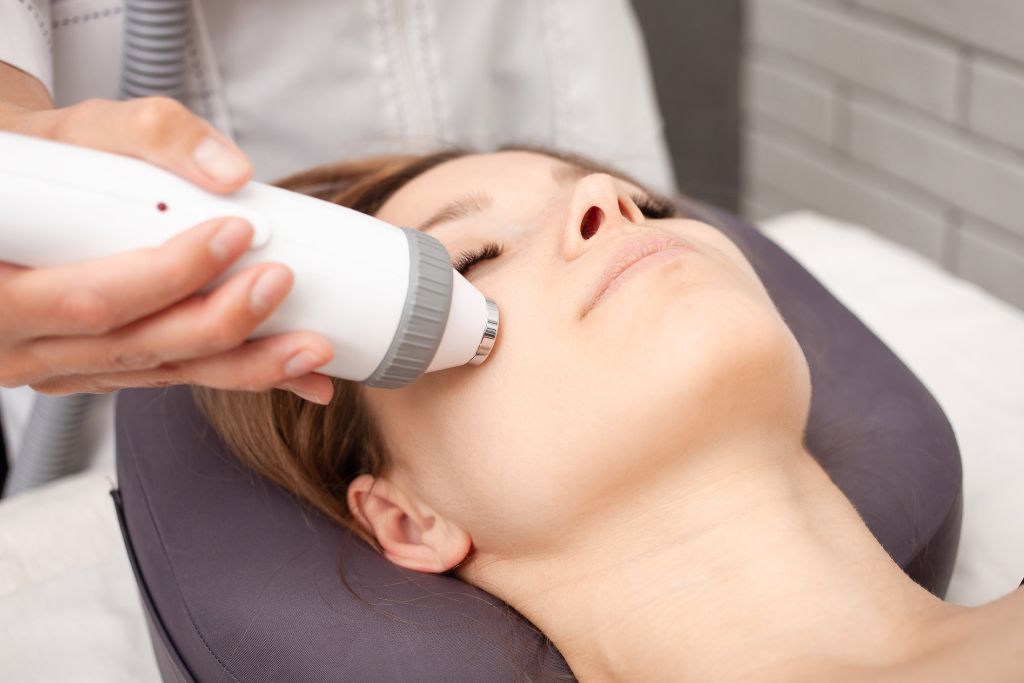Do you wish there was a magical elixir that could turn back the hands of time and keep your skin looking young? The scientific community has made significant strides toward achieving that goal. Amazingly, researchers have identified a protein that contributes to the aging of the skin. It is now possible to see the underlying delicate mechanisms that cause wrinkles and fine lines. Join us as we explore this ground-breaking discovery and the ramifications it has for the development of anti-ageing treatments while sipping on your preferred beverage. Unlock the mysteries of our skin’s cellular makeup!
Which protein causes skin aging?
A protein is deep in our skin controls aging. Collagen protein. Collagen, our skin’s building block, supports and stretches. It keeps youthful skin tight and smooth. Collagen production declines with age. Sun exposure, pollution, and smoking exacerbate this process. The result? Fine lines, wrinkles, sagging skin—all indications of aging.
Why is collagen essential to skin aging? It scaffolds dermal proteins and cells. It supports tissue structure and moisture levels. Our skin loses its capacity to bounce back from stressors and preserve its youthful appearance when collagen levels decrease or get damaged owing to causes like UV damage.

Now that we understand how collagen affects our skin’s aging process, let’s explore what this revolutionary discovery means for future anti-ageing treatments.
How does this protein affect the skin?
Our greatest organ, the skin, protects us from external hazards. Our skin changes as we age, causing wrinkles, sagging, and other indications of aging. This process involves the recently discovered protein. This protein, which we’ll call “SkinAgingProtein” since its official name is complicated, is vital to skin aging. It impacts collagen and elastin formation, which maintains our skin firm and elastic.
As people age, SkinAgingProtein increases and collagen and elastin diminish. This imbalance causes skin elasticity loss and fine lines and wrinkles. SkinAgingProtein slows cell turnover and inhibits skin cell healing. Understanding how this protein affects the skin opens new anti-aging treatments. Scientists may halt or reverse aging by targeting SkinAgingProtein or regulating its activity. This research gives hope for better skin care products or revolutionary medical therapies to regenerate aging skin.

The recently found “SkinAgingProtein” affects collagen, elastin, and cell turnover. Targeting or regulating this protein could advance anti-aging therapy.
How will this discovery affect anti-ageing treatments?
The identification of a protein that causes skin ageing has sparked new anti-ageing treatments. This breakthrough may change skincare and help us fight age. This discovery helps scientists comprehend cellular skin aging. Researchers can now focus on targeting this specific protein’s impact on ageing.
This insight allows for more customized anti-ageing treatments. Understanding how proteins affect skin ageing allows for personalized treatment plans. This research may also lead to new therapeutics that prevent or reverse ageing. Imagine improved medicinal approaches that target this protein to stop or reverse wrinkles, fine lines, and sagging skin.

One thing is certain: Anti-aging medicines have a bright future. Scientists will discover amazing ways to age gracefully as they study skin ageing. Watch this intriguing field evolve!
Conclusion
Anti-ageing research was revolutionized by the discovery of this protein that ages skin. Scientists now understand how this protein affects the skin and its implications for future treatments. Researchers can now investigate new ways to treat wrinkles, fine lines, and other symptoms of ageing by understanding the mechanics of skin ageing. Targeted medicines that target this protein and decrease ageing are now possible thanks to this discovery.
These findings may not lead to successful anti-ageing medicines right away, but there is optimism. The skincare sector will closely monitor this protein’s research and development. This discovery shows the necessity of scientific research on skin ageing. By studying these complex pathways, we can find novel strategies to keep our skin appearing young.

Let us celebrate this wonderful milestone as scientists continue to study and harness skin health proteins. Each discovery renews hope for finding new strategies to help us age gracefully.
Scientists continue to uncover the complex mechanisms of aging in skin aging studies. “Space Exploration and Travel” may appear unconnected, yet it shows how scientific exploration is intertwined. Scientists’ tireless efforts to comprehend the aging process reveals our biology’s secrets, just as space exploration reveals the universe’s mysteries. Genetics, cellular biology, and protein research reveal skin aging determinants. Every new finding brings us closer to discovering breakthrough solutions and interventions that may halt or reverse aging, resulting in healthier and younger skin.










